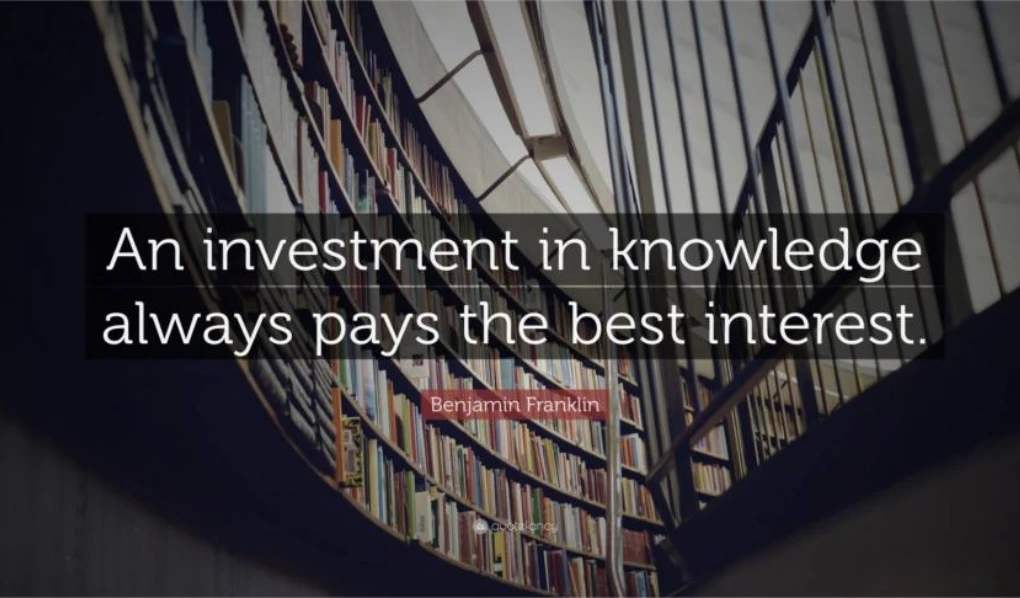A great teacher can have a profound influence on a child’s life – providing not just the knowledge they need to navigate the world, but the inspiration to pursue their passions.
If you’re currently wondering “Should I become a teacher?”, this article will provide some tips and guidance to help you decide whether a career in education is for you. We’ll also explain what qualifications are needed to transition into a teaching career.
Reflect on your passions and strengths
Not sure if you’d be suited to life as a primary or secondary school teacher? One way to get a clearer understanding is to conduct a self-assessment by making a list of your passions and strengths.
While there are a multitude of teaching styles out there, the underlying characteristic shared by all good teachers is passion. To succeed in this profession, you have to have a genuine passion for learning, and a drive to share your knowledge with others.
It might be helpful to get out a pen and paper and jot down some notes about your motivations for wanting to teach. Key signs that you’re suited to teaching include:
- You genuinely care about children: Spending every day in a classroom is a different experience to being around your own (or your friends’) kids. People who are suited to teaching will be passionately committed to seeing children develop and succeed.
- You’re a lifelong learner: If you enjoy learning new things, and you’re always striving to expand your knowledge base, you’ll be well-positioned to embark on a new career as a teacher.
- You’re a deeply patient person: Teaching is a good career for people who are generally very patient and calm. You’ll also need to be sensitive to the fact that different students learn at different rates, and some may need more attention and encouragement than others.
- You have good organisational skills: Teaching requires you to be on top of your game with regard to organisation. Key aspects of the job include creating lesson plans and marking, which both rely on good time management and planning.
Teaching is also suited to people who are natural communicators. This goes further than your ability to write clearly and speak confidently; it’s about your ability to assess whether what you are communicating is being understood. Good communicators tend to be empathetic people with the flexibility to adjust their communication style to better suit the needs of individuals and groups.
You might like to take a personality test to gain more insight into your natural skills and strengths. The Myers-Briggs test, for example, can provide illumination to help you understand which careers you’re best suited to.
Consider your experience and qualifications
It can also be helpful to reflect on your work history, to see if your current profession has given you skills that would be useful in a teaching career. Taking the time to reflect on what you’ve done well in your current job and previous roles will provide valuable insight into whether you’re suited to teaching.
If any of the following statements resonate with you, a career as a teacher could be a good fit:
- You enjoy explaining concepts to others: If you’ve ever been responsible for training other employees, and you’ve enjoyed the experience, this is good preparation for teaching.
- You feel comfortable in positions of leadership: In the classroom, you’ll need to be able to command the attention and respect of your students. If you’ve successfully held leadership positions within your current workplace, this will serve you well in a fulfilling teaching career.
- You’ve had positive experiences working with children: Perhaps you’ve worked as a childcare assistant, or you’ve worked in a retail position where you had frequent interactions with kids. If you are able to handle these experiences with confidence, this skill can be transferred into a new career in education.
- You’ve worked in an area related to what you want to teach: If you have your sights set on becoming a high school English teacher, for instance, it helps if you’ve worked in a place like a bookstore, or you have experience in publishing your writing.
A bachelor’s degree is required to become a primary or secondary teacher. If you want to excel in your teaching career or become an expert in a specialist field, postgraduate study is recommended. Swinburne Online offers a Master of Teaching (Primary) and Master of Teaching (Secondary), making it possible for you to gain a new qualification in a way that suits your schedule.
Entry to a master’s program usually requires a bachelor’s degree as a minimum. If you have questions about this, please contact us to discuss your situation.
For those who want to transition into a career as a secondary school teacher, you’ll need a bachelor’s degree in the subject area you want to teach or an equivalent qualification that includes at least a major study in one approved secondary teaching area (equivalent to one-year full-time equivalent study) and a minor in at least one other recognised teaching area (equivalent to half a year of full-time study).
Both undergraduate and postgraduate prior study can be considered in your teaching area(s) method(s) assessment. Incomplete study (in the specialty subject area) at the undergraduate and/or postgraduate level will also be considered. For approved teaching areas, please visit the Victorian VCE study design and ACARA subject areas.
Research different types of teaching jobs
If you’re not sure whether you want to be a primary school or high school teacher, that’s okay! To decide which pathway is better for you, it’s helpful to conduct some research into the various responsibilities of primary and secondary school teachers.
Primary school teachers are responsible for children aged five to thirteen, and their duties usually include:
- Preparing lesson plans
- Setting up the classroom for learning
- Assessing children’s schoolwork
- Supervising children in outdoor settings
- Supporting children’s social development
High school teachers have similar responsibilities, except they teach children aged twelve to eighteen. Their duties can include:
- Preparing curriculum-based lesson plans
- Setting and marking homework tasks
- Assessing student progress through exams and class activities
- Guiding classroom discussions
- Meeting with parents and carers to discuss student progress
- Encouraging good behaviour within the classroom
- Attending staff meetings and professional development workshops
- Helping to organise and facilitate extra-curricular activities for students
Understand the responsibilities and lifestyle
Other considerations when you’re deciding whether to become a teacher include the hours required and salary expectations. If you know anyone who is currently working as a teacher, make some time to chat to them about it, to see if they have any insight and advice they can share with you.
According to Seek, the average annual salary for primary school teachers and secondary school teachers is $95,000, although this can vary depending on your experience, and whether you’re teaching at a public or private school.
Bear in mind that when you’re first starting, your salary might be lower, but as you gain more experience and become more established, you can also increase your earning potential.
- time-saving techniques to stay on top of your workload
- professional learning workshops for teachers
Gain hands-on experience
Another great way to gauge whether teaching is the right career choice is to do some volunteer work in a school, so you can get a feel for it. Some people also choose to get experience first as a teacher’s aide and transition into teaching from there.
Practical experience
Practical experience is built into Swinburne Online’s Master of Teaching (Primary) and Master of Teaching (Secondary), giving you valuable experience inside a classroom. Placements in school settings provide you with the skills you need to step into your first professional teaching role with confidence.
You can learn more about our Master of Teaching (Primary) and Master of Teaching (Secondary) degrees by getting in touch with our friendly team, who can answer any questions you might have.
Once you’ve decided that you’d like to start your journey towards a rewarding career as a teacher, you can apply now through our online form.



